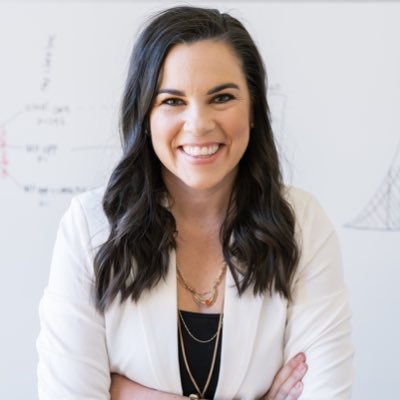Claire Pendergrast, ASTHO Senior Analyst for Health Improvement and Healthy Aging, has new research outlining five key strategies ASTHO members can use to promote healthy aging in their jurisdictions; Dr. Katelyn Jetelina, an epidemiologist, created...
Claire Pendergrast, ASTHO Senior Analyst for Health Improvement and Healthy Aging, has new research outlining five key strategies ASTHO members can use to promote healthy aging in their jurisdictions; Dr. Katelyn Jetelina, an epidemiologist, created an email newsletter that strives to keep public interest aimed at public health; and ASTHO is hosting a webinar titled “Vaccine Equity: Combating COVID-19 Misinformation” on February 13th.
Your Local Epidemiologist Webpage
ASTHO Webpage: Vaccine Equity Combating COVID-19 Misinformation
ROBERT JOHNSON:
This is Public Health Review Morning Edition for Friday, February 10, 2023. I'm Robert Johnson.
Now, today's news from the Association of State and Territorial Health Officials.
CLAIRE PENDERGRAST:
It's really clear that explicitly considering the health needs of older adults in public health programs and policies is critical.
JOHNSON:
ASTHO's Claire Pendergrast talking about new research outlining five key strategies ASTHO's members can use to promote healthy aging in their jurisdictions.
PENDERGRAST:
So, we've reviewed hundreds of publications and reports. We also consulted subject matter experts from across ASTHO, and received input from our partner organizations working in healthy aging and older adult health, and we also got input from current and former health officials. We use all that input and information to select five key strategies. And we looked for strategies that could further health equity, that offered health benefits for older adults specifically, and had some attention to healthy aging across the life course.
JOHNSON:
Pendergrast says the article in the Journal of Public Health Management and Practice outlines key interventions and related recommendations.
PENDERGRAST:
We talk about expanding paid family and sick leave, which offers benefits for both older adults who may be care recipients and people of younger age groups who might be providing that care and balancing that with their paid employment. We talked about supporting healthy community design, which offers benefits for people of all ages. Promoting fall prevention and mobility is really important for older adults in preventing avoidable healthcare needs or potentially really negative health impacts. And then, increasing telehealth access is important in strengthening the long-term care, healthcare, and public health workforce to better address the needs of older adults.
JOHNSON:
Pendergrast admits the article covers a lot of ground, but says it's okay to start small.
PENDERGRAST:
I think it's important to recognize as folks review these recommendations that it's not necessarily feasible to do everything, and even one of these could be something that's a decades-long process of creating momentum or long-term change. But starting where there's already interest and engagement in a jurisdiction I think is a good approach, and choosing an element that feels like it's feasible and feels like it aligns with the communities you serve and the stakeholders you're working with.
JOHNSON:
You can read the full report using the link in the show notes.
What began as a professor's email to a few students and staff at the University of Texas now is a popular email newsletter helping connect science to real life. More importantly, it gives readers a basic understanding of the impact public health has on them and their communities. Dr. Katelyn Jetelina writes the newsletter titled Your Local Epidemiologist.
KATELYN JETELINA:
You have the comms and then you have the scientists, and we really need to figure out ways in which they become a core unit together to help communicate what's going on. The other thing that I've learned a lot is, yeah, we have to balance this whole scientific nuance with detail, which can be very difficult to do.
JOHNSON:
Jetelina says successful communication begins with listening.
JETELINA:
You have to go look for questions. But once you start listening, and hearing people's concerns--because there's legitimate concerns out there--coming from a place of empathy builds new foundations of trust. And it takes time, which is difficult during a pandemic because time is lives.
JOHNSON:
Jetelina knows people learned a lot about public health during the pandemic. She wants to keep them interested even as we learn to live with COVID-19.
JETELINA:
We have avian flu, we have gas stoves debate that I'm putting out a post tomorrow about, we have gun violence in the United States, we have road accident--I mean, it touches literally every single day. And I hope that we can elevate public health. We have that people's attention right now and show how it is useful and helpful in having healthy lives even outside of a pandemic.
JOHNSON:
You can sign up for Jetelina's newsletter using the link in the show notes.
Also today, misinformation has been a damaging byproduct of the pandemic. O'Keyla Cooper has more.
O’KEYLA COOPER:
ASTHO is hosting a webinar on vaccine equity and combatting COVID-19 misinformation on February 13 from 1-2 p.m. Eastern time. This event will highlight best practices for identifying and dispelling misinformation and discuss ways to assist groups most at risk of being exposed and influenced by misinformation through creative social media. There's the link in the show notes to register.
JOHNSON:
Finally this morning, stay ahead of breaking news coming out of Washington, D.C. and legislatures across the country by signing up for ASTHO's legislative alert emails. You can join the list using the link in the show notes.
That'll do it for today's newscast. We're back Monday morning with more ASTHO news and information.
I'm Robert Johnson. You're listening to Public Health Review Morning Edition. Have a great weekend.





